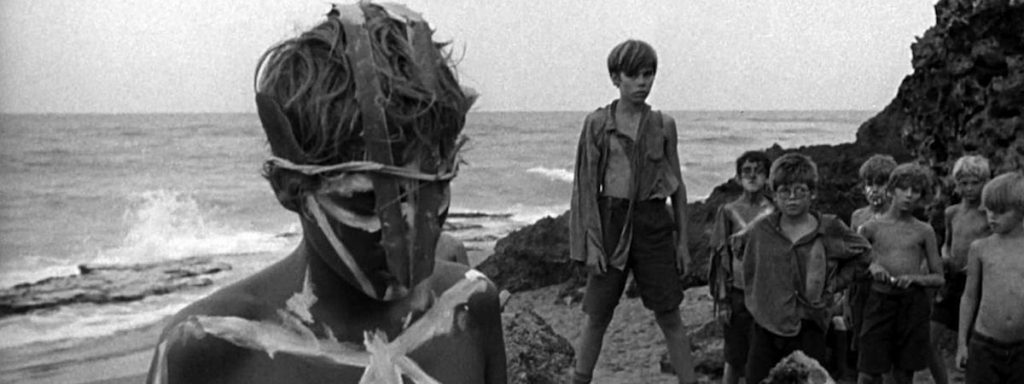Rereading William Golding’s Lord of the Flies, I couldn’t help but notice the degree to which the received interpretation of the novel has relatively little to do with the substance of the novel itself. The received interpretation emphasizes the inevitability of social breakdown that supposedly attends the withdrawal of authority or constraint. Without the “men with megaphones” maintaining order, the children on the island descend into a feral, “savage” state. The irony, of course, is that the military men whom Ralph encounters at the very end – their rescuers – are engaged in their own brand of highly organized collective violence (as well as the fact that it’s a war that brings them to the island in the first place). When people characterize a situation as “like Lord of the Flies,” they usually mean something like Hobbes’s war of all against all. But the novel has absolutely nothing to do with such a war. To the contrary, the novel is about the foundation of social order, and the emergence of factions aligned with the conflicting leadership styles embodied by Ralph and Jack, respectively. Additionally, the novel doesn’t lionize Ralph or vilify Jack. To the contrary, it flirts with asserting a “secret bond” between the two. They’re not two sides of the same coin, but embodiments of two different leadership styles, each of which fails when it fails to supplement the other. A social order presided over by Ralph will collapse (as is apparent) because it offers nothing except delayed gratification and procedure. Trying to stave off collapse or despair only works if you have something to offer. Likewise, it’s difficult to imagine Jack’s tribe not continuing down its doomed path toward factionalism and collapse. Eventually, Roger (probably) would become Jack’s Sejanus, and the process of decay would destroy the tribe. On the other hand, Ralph and Piggy offer a function the value of which Jack in his arrogance utterly misses: they constitute an evaluative feedback system by means of which to set rational goals and update beliefs in accordance with the reality principle. Likewise, Jack’s ability to focus attention, seize the initiative, and spontaneously generate ritual sublimations of dark affect is equally necessary for community resilience. In other words, Ralph and Jack need each other. Jack is not a specter of original sin or primordial anarchy, and Ralph is not the virtuous defender of democratic norms. Indeed, both seem only partly conscious of the forces with which they are struggling; Ralph and Jack are like the two halves of a functional strategic whole. It’s remarkable, then, the degree to which the novel is perceived as a conservative or pessimistic moral fable about the human propensity toward cruelty and violence in the state of exception. In fact, it seems more like a study of the decision points and personality politics that contribute equally to both community formation and political decay. Perhaps in a later post I’ll write a little about gender politics and Simon’s role in the novel.
